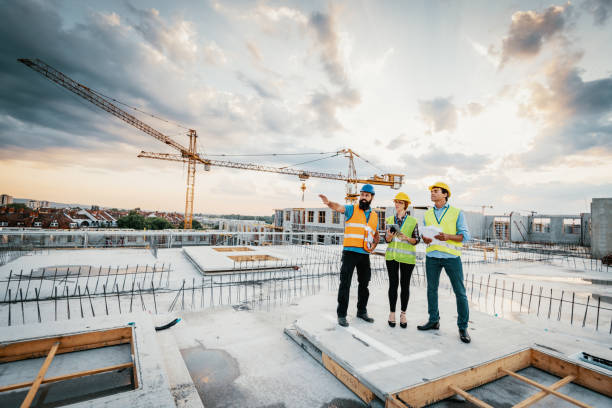What kind of training do construction site security guards receive?
Introducation:
Construction Sites are often high-risk environments due to the presence of heavy machinery, valuable equipment and materials, and the potential for theft, vandalism, and accidents. As such, security guards play an important role in ensuring the safety and security of the site, as well as protecting the assets and property of the construction company. In order to perform their duties effectively, construction site security guards undergo specialized training that equips them with the necessary knowledge and skills to handle the unique challenges of this environment.
The type of training that construction site security guards receive may vary depending on the specific requirements of the construction project, the level of risk associated with the site, and the policies and procedures of the security company. However, there are some basic elements of construction site security guard training that are common across the industry.
Site-specific training:
One of the key components of construction site security guard training is site-specific training. This involves familiarizing the security guards with the layout and features of the construction site, as well as any potential hazards and risks associated with the project. The security guards will need to know the location of entry and exit points, high-value equipment and materials, and any potential areas of vulnerability. They will also need to be aware of any specific rules and regulations that apply to the site, such as safety protocols and restrictions on access.
- Security procedures and protocols Construction site security guards need to be familiar with the security procedures and protocols that are in place at the site. This includes understanding the role of security personnel, the procedures for handling incidents and emergencies, and the protocols for reporting any suspicious activity or security breaches. Security guards may also need to be trained in the use of security equipment and technology, such as CCTV cameras, alarms, and access control systems.
- First aid and emergency response Construction sites can be high-risk environments, with the potential for accidents and injuries. As such, construction site security guards may need to receive training in first aid and emergency response procedures. This may include basic first aid training, as well as training in how to respond to specific emergencies, such as fires, chemical spills, or medical emergencies. Security guards may also need to be trained in evacuation procedures and protocols.
- Conflict resolution and communication Security guards on construction sites may need to deal with a range of different people, including workers, contractors, and members of the public. As such, they need to be skilled in conflict resolution and effective communication. This may involve training in techniques for de-escalating potentially volatile situations, as well as how to communicate effectively with different types of people.

- Health and safety Construction site security guards need to be aware of the health and safety risks associated with the site, and how to minimize these risks. This may involve training in basic safety procedures, such as wearing appropriate protective equipment and following safety protocols when operating machinery. Security guards may also need to be trained in how to identify and report any potential safety hazards.
- Legal and regulatory compliance Security guards on construction sites need to be aware of the legal and regulatory requirements that apply to the site. This may include understanding the relevant laws and regulations related to health and safety, environmental protection, and building codes. Security guards may also need to be trained in how to identify and report any potential violations of these laws and regulations.
- Professional conduct and ethics Security guards on construction sites are often seen as representatives of the security company and the construction company they are working for. As such, they need to adhere to a high level of professional conduct and ethics. This may involve training in areas such as integrity, confidentiality, and customer service.
- Ongoing training and development Finally, it is important for construction site security guards to receive ongoing training and development in order to stay up-to-date with the latest security techniques, technologies.
Concolusion:
In conclusion, construction site security guards play a vital role in ensuring the safety and security of construction sites. They are responsible for protecting valuable assets and property, as well as ensuring the safety of workers, contractors, and members of the public. To perform their duties effectively, construction site security guards undergo specialized training that equips them with the necessary knowledge and skills to handle the unique challenges of this environment.
The type of training that construction site security guards receive may vary depending on the specific requirements of the construction project, the level of risk associated with the site, and the policies and procedures of the security company. However, some basic elements of construction site security guard training are common across the industry, including site-specific training, security procedures and protocols, first aid and emergency response, conflict resolution and communication, health and safety, legal and regulatory compliance, professional conduct and ethics, and ongoing training and development.
Overall, construction site security guards must be highly trained and skilled professionals who are capable of working in a challenging and dynamic environment. They play a critical role in ensuring the success of construction projects, as well as the safety and security of all those involved. By investing in the training and development of construction site security guards, construction companies and security companies can ensure that they have the best possible team in place to meet the unique security challenges of construction sites.


Comments are closed.